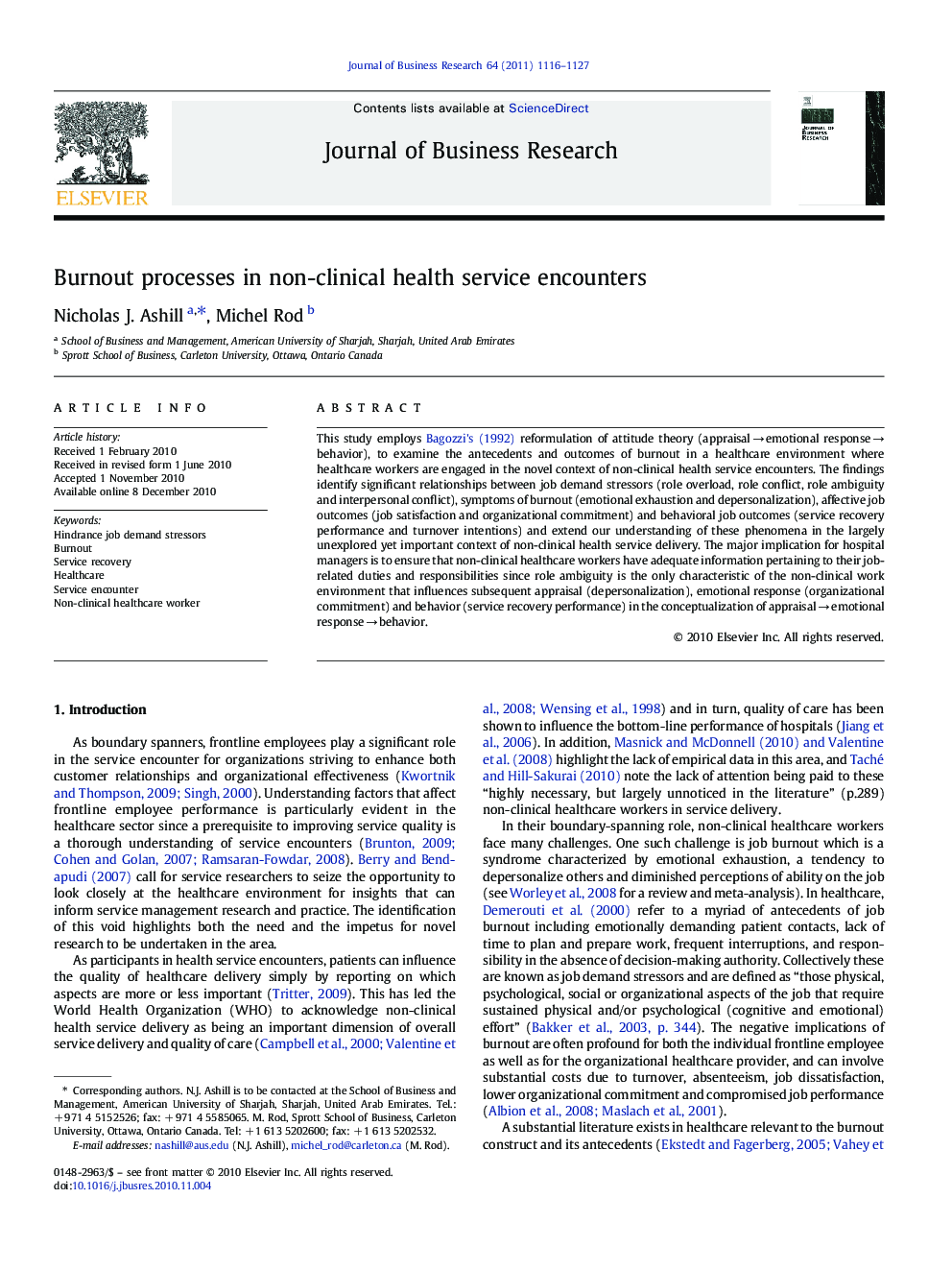| Article ID | Journal | Published Year | Pages | File Type |
|---|---|---|---|---|
| 1018487 | Journal of Business Research | 2011 | 12 Pages |
This study employs Bagozzi's (1992) reformulation of attitude theory (appraisal → emotional response → behavior), to examine the antecedents and outcomes of burnout in a healthcare environment where healthcare workers are engaged in the novel context of non-clinical health service encounters. The findings identify significant relationships between job demand stressors (role overload, role conflict, role ambiguity and interpersonal conflict), symptoms of burnout (emotional exhaustion and depersonalization), affective job outcomes (job satisfaction and organizational commitment) and behavioral job outcomes (service recovery performance and turnover intentions) and extend our understanding of these phenomena in the largely unexplored yet important context of non-clinical health service delivery. The major implication for hospital managers is to ensure that non-clinical healthcare workers have adequate information pertaining to their job-related duties and responsibilities since role ambiguity is the only characteristic of the non-clinical work environment that influences subsequent appraisal (depersonalization), emotional response (organizational commitment) and behavior (service recovery performance) in the conceptualization of appraisal → emotional response → behavior.
